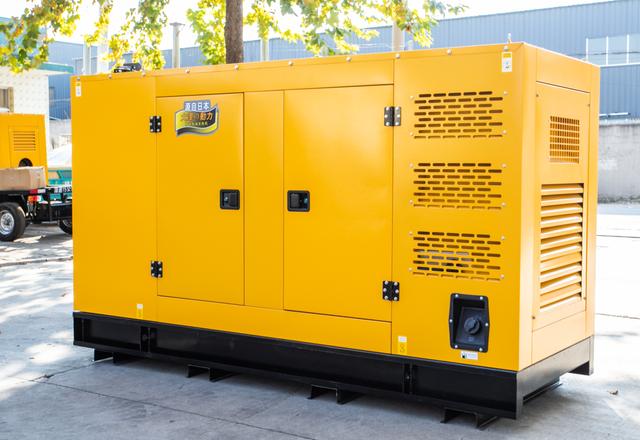Introduction
In times of natural disasters, such as hurricanes, earthquakes, or wildfires, access to reliable power is crucial for ensuring the safety and well-being of affected communities. Diesel generators have long been a staple for disaster relief efforts, providing a dependable source of electricity in the midst of chaos and destruction. This article will explore the role of diesel generators in disaster relief, highlighting their benefits, applications, and challenges in emergency situations.
Understanding Diesel Generators
Diesel generators are a type of backup power system that uses a diesel engine to generate electricity. They are often used in situations where a reliable source of electricity is needed, such as in remote locations, construction sites, or during power outages. Diesel generators come in various sizes, ranging from portable units that can power a few essential appliances to large industrial units capable of providing electricity to entire buildings or facilities.
One of the key advantages of diesel generators is their reliability. Diesel engines are known for their durability and long lifespan, making them well-suited for continuous operation in demanding conditions. Diesel fuel is also more stable and has a longer shelf life compared to other fuel types, such as gasoline or propane, which can be critical in disaster scenarios where access to fuel may be limited.

Applications of Diesel Generators in Disaster Relief
Diesel generators play a critical role in disaster relief efforts by providing emergency power to essential services and infrastructure. Some of the key applications of diesel generators in disaster relief include:
1. Emergency Shelters: Diesel generators are often used to power emergency shelters, providing lighting, heating, and cooling to displaced individuals and families. In situations where the main power grid is down, diesel generators can ensure that essential services are maintained within shelters, such as medical facilities, communication systems, and water treatment plants.
2. Hospitals and Healthcare Facilities: Hospitals and healthcare facilities rely on a constant supply of electricity to operate life-saving equipment, such as ventilators, dialysis machines, and refrigeration units for storing medications and vaccines. Diesel generators are essential for ensuring that these facilities can continue to provide critical care to patients during and after a disaster.
3. 75kw diesel generator for remote power supply : In the aftermath of a disaster, communication networks are often disrupted, making it difficult for first responders and relief organizations to coordinate their efforts. Diesel generators can power communication towers, radio systems, and mobile charging stations, helping to restore connectivity and facilitate rescue and recovery operations.
4. Water and Wastewater Treatment Plants: Access to clean water is essential for public health and sanitation following a disaster. Diesel generators are used to power water and wastewater treatment plants, ensuring that drinking water is safe to consume and that sewage is properly treated and disposed of to prevent the spread of disease.
5. Emergency Response Vehicles: Mobile diesel generators mounted on trailers or trucks can be deployed to provide power to emergency response vehicles, such as command centers, field hospitals, and equipment charging stations. These portable units are versatile and can be quickly transported to different locations as needed.
Challenges and Considerations
While diesel generators are a valuable resource in disaster relief efforts, they also present certain challenges and considerations that need to be addressed to ensure their effective deployment and operation. Some of the key challenges include:
1. Fuel Availability: One of the primary challenges of using diesel generators in disaster relief is the availability of fuel. In the aftermath of a disaster, fuel supply chains may be disrupted, leading to shortages and price spikes. Relief organizations must have contingency plans in place to secure an adequate supply of fuel for their generators.
2. Emissions and Environmental Impact: Diesel generators emit pollutants, such as nitrogen oxides (NOx) and particulate matter, which can have negative environmental and health effects. To mitigate these impacts, generators should be equipped with emission control technologies, such as catalytic converters and diesel particulate filters, and operated in compliance with environmental regulations.
3. Maintenance and Reliability: Proper maintenance is essential to ensure the reliable operation of diesel generators during disaster relief operations. Regular inspections, testing, and servicing of the generators and their components, such as the engine, fuel system, and electrical connections, are necessary to prevent breakdowns and ensure optimal performance when needed.
4. Noise Pollution: Diesel generators can be noisy, especially when operating at high loads or in close proximity to residential areas. Noise pollution can have a significant impact on the well-being of individuals in disaster-affected communities, particularly those who are already experiencing stress and trauma. To minimize noise disturbances, generators should be placed in well-ventilated and soundproof enclosures.
5. Capacity Planning: It is essential to accurately assess the power requirements of different applications and facilities in disaster relief settings to determine the appropriate size and number of diesel generators needed. Overestimating or underestimating power demand can lead to inefficiencies, increased fuel consumption, and potential power shortages.
Conclusion
Diesel generators are a critical component of disaster relief efforts, providing reliable and portable power solutions in times of crisis. By understanding the benefits, applications, challenges, and considerations associated with diesel generators, relief organizations can effectively deploy these systems to support essential services and infrastructure during and after disasters. With proper planning, maintenance, and coordination, diesel generators can make a significant difference in the resilience and recovery of disaster-affected communities.
